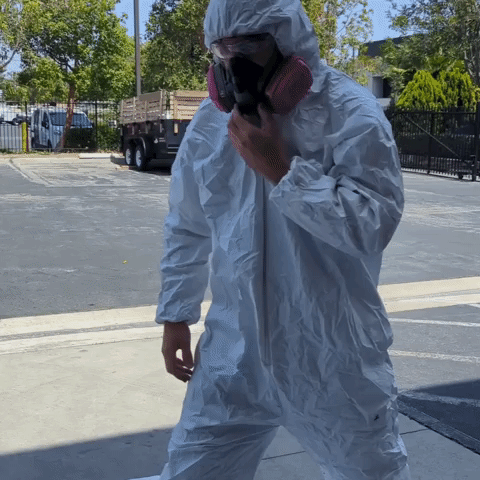If you're looking for a top-quality ski jacket that will keep you warm and dry on the slopes, you've come to the right place. In this article, we'll take a look at 10 of the best ski jackets on the market, perfect for both beginner and experienced skiers alike.
-
💸
# 1
North Face Men’s Venture Jacket 
- Why it's rad: We love the North Face, and this jacket is a perfect choice for almost anyone - easily making it our top pick.
- Buy at Amazon
-
🏆
# 2
Columbia Women's Bugaboo II 
- Why it's rad: Columbia is a great company, and this women's jacket shows exactly why - it's durable, affordable, and stylish.
- Buy at Amazon
-
🤙🏼
# 3
Mountain Hardwear Women's Ghost Whisperer 
- Why it's rad: Need a sleek, cool jacket? This is the one, undoubtedly.
- Buy at Amazon
10 best ski jackets
1. The North Face Men's Venture Jacket
This stylish ski jacket from The North Face is perfect for both beginner and experienced skiers alike. It features a waterproof exterior, along with a cozy fleece lining that will keep you warm and dry no matter what the weather conditions are like on the slopes.
2. Columbia Women's Bugaboo II Interchange Jacket
This versatile ski jacket from Columbia is an excellent pick for women who want to be prepared for any type of skiing conditions. It comes with a removable inner layer, so you can adjust it depending on how cold it is outside. Plus, the bright colors and stylish design are sure to turn heads on the slopes.
3. Patagonia Men's Powder Bowl Jacket
This tough ski jacket from Patagonia is a good buy for men who want a durable piece of outerwear that will withstand everything the slopes can throw at it. It's made with a waterproof and breathable fabric, and it even has a powder skirt to keep snow out when you're carving up the mountain.
4. Mountain Hardwear Women's Nitrous Hooded Down Jacket
This ultra-lightweight down jacket from Mountain Hardwear is perfect for women who want to stay warm without feeling weighed down by their coat. It's filled with 800-fill goose down, making it one of the most packable and compressible jackets on the market.
5. Marmot Men's Guides Down Hoody
This classic down ski jacket from Marmot is a good choice for men who want a tried-and-true piece of outerwear that will keep them warm in any conditions. It's filled with high-quality 800-fill goose down, and it features a water-resistant shell to keep you dry when you're skiing in wet weather.
6. Arc'teryx Women's Cerium LT Hooded Down Jacket
This lightweight down jacket from Arc'teryx is great for women who want a coat that they can take anywhere, whether they're hitting the slopes or just running errands around town. It's filled with 850-fill goose down, making it one of the warmest jackets on the market.
7. Patagonia Men's Nano Puff Baffle Jacket
This synthetic insulated jacket from Patagonia is an excellent pick for men who want a piece of outerwear that they can count on in any conditions. It's made with a water-resistant shell, and it's filled with 60g PrimaLoft Gold Eco insulation, making it one of the warmest jackets on the market.
8. The North Face Women's Thermoball Triclimate Jacket
This versatile ski jacket from The North Face is a good choice for women who want a piece of outerwear that they can use in any conditions. It features a removable inner layer, so you can adjust it depending on how cold it is outside. Plus, the North Face's Thermoball insulation will keep you warm even when wet.
9. Columbia Men's Bugaboo II Interchange Jacket
This versatile ski jacket from Columbia is fantastic for men who want to be prepared for any type of skiing conditions. It comes with a removable inner layer, so you can adjust it depending on how cold it is outside. Plus, the bright colors and stylish design are sure to turn heads on the slopes.
10. Mountain Hardwear Women's StretchDown Hooded Jacket
This stretchy down jacket from Mountain Hardwear is great for women who want a piece of outerwear that they can move freely in. It's made with a stretchy fabric that's filled with 800-fill goose down, making it one of the most packable and compressible jackets on the market.
What are the best ski jackets for a beginner?
There are many options here. First and foremost, you'll want to make sure your ski jacket is waterproof. This will help you stay dry and comfortable while you're skiing, even if you take a tumble. Look for a jacket that has a water-resistant coating or seam-sealed construction.
Next, you'll want to consider insulation. This is important for keeping you warm on the slopes, even in colder weather. Most ski jackets are insulated with synthetic materials like polyester or down. Down is usually more expensive, but it's also more effective at trapping heat.
Finally, pay attention to the fit of your ski jacket. It should be snug but not too tight, so you can move freely while skiing. And make sure the sleeves are long enough to cover your wrists when you're reaching for your poles.
What are the best materials for a ski jacket?
Ski jackets are typically made from one of three types of material: Gore-Tex, down, or synthetic. Each has its own benefits and drawbacks, so it's important to choose the right one for your needs.
Gore-Tex is a waterproof and breathable fabric that is often used in high-end ski jackets. It is very effective at keeping you dry and comfortable, but it can be expensive.
Down is a natural insulation that is both warm and lightweight. Down jackets are usually very comfortable, but they may not be as waterproof as some other options.
Synthetic materials are often cheaper than either Gore-Tex or down, and they can still provide good warmth and protection from the elements. However, they may not be as breathable as other options, so you may get sweaty when you ski hard.
When choosing a ski jacket, it's important to consider the conditions in which you'll be skiing. If you're going to be skiing in very cold weather, you'll need a warmer jacket. If you're going to be skiing in wet conditions, you'll need a waterproof jacket. And if you're going to be doing a lot of high-output activity, you'll need a jacket that is both breathable and comfortable.
No matter what type of material you choose, make sure that your ski jacket fits well. A good fit will help keep you warm and will allow you to move freely while skiing.
What is the average price of a ski jacket?
There is no definitive answer to the question of how much a ski jacket should cost, as prices can vary greatly depending on a number of factors. However, we can take a look at some average prices to get an idea of what you can expect to pay.
One factor that will affect the price of a ski jacket is the material it is made from. Ski jackets are typically made from either synthetic or down materials. Synthetic materials are usually more affordable, but down materials tend to be warmer and more durable.
Another factor that can impact the cost of a ski jacket is the brand. Some brands are more expensive than others, but this does not necessarily mean that they offer better quality jackets. It is important to do your research and read reviews before making a purchase.
Finally, the price of a ski jacket can also be affected by the features it offers. Jackets with more features, such as waterproofing and additional insulation, will typically cost more than those without these features.
So, how much does the average ski jacket cost? Prices can range from around $100 to $500 or more, depending on the factors mentioned above. If you are looking for a high-quality jacket that will last you for several seasons, you can expect to pay on the higher end of this spectrum. However, if you are just starting out or are on a budget, there are plenty of great options available at lower prices.
What is the difference between a Gore-Tex Jacket and a water-resistant jacket?
A Gore-Tex jacket is made with a waterproof, breathable fabric that helps keep you dry and comfortable in wet weather. Water-resistant jackets are treated with a water-repellent finish that helps keep you dry in light rain or snow.
What are some of the features of a good ski jacket?
A good ski jacket should be made of waterproof and breathable fabric, with taped seams to prevent water from seeping through. It should also be insulated to keep you warm, even in wet and cold conditions. The jacket should also have a hood that can be adjusted to fit snugly around your head, and a powder skirt to keep snow out. Other features to look for include pit zips for ventilation, a goggle pocket, and a media pocket.
What are some of the different types of ski jackets?
There are a variety of different ski jackets on the market, each designed for a specific purpose. For example, some jackets are designed for alpine skiing, while others are better suited for cross-country skiing.
Some of the different types of ski jackets include:
Alpine Ski Jackets: These jackets are designed for downhill skiing and feature a waterproof and breathable outer shell. They also have a warm insulation layer to keep you warm in cold conditions.
Cross-Country Ski Jackets: These jackets are designed for cross-country skiing and feature a lightweight design. They typically have a water-resistant outer shell and a thin insulation layer.
Freestyle Ski Jackets: These jackets are designed for freestyle skiing and snowboarding. They typically have a waterproof and breathable outer shell, as well as a warm insulation layer.
All-Mountain Ski Jackets: These jackets are designed for all-mountain skiing and feature a versatile design. They typically have a waterproof and breathable outer shell, as well as a warm insulation layer.
What is the difference between a jacket and a coat?
A coat is a piece of clothing that is worn over other clothes, typically in colder weather. A jacket is a lighter, shorter piece of outerwear that can be worn over other clothes. Jackets are usually less formal than coats and are often more versatile, as they can be easily removed and carried with you if the weather gets warmer.
What is the best ski jacket material?
There are a few different types of materials that are commonly used in ski jackets, and each has its own advantages and disadvantages. The most common materials are synthetic fibers, down, and wool.
Synthetic fibers are a popular choice for ski jackets because they are lightweight and water-resistant. However, they don't provide as much warmth as other materials, so you may need to layer up if you're going to be skiing in cold weather.
Down is an excellent insulator, so it's a good choice for ski jackets if you're looking for something that will keep you warm. Down is also fairly light-weight, making it a good option if you don't want to feel too bulky while you're skiing. However, down does tend to lose its insulating properties when it gets wet, so you'll need to be careful if you're skiing in wet conditions.
Wool is another material that is often used in ski jackets. It's a great insulator, so it will keep you warm even when wet. Wool is also fairly breathable, so you won't get too sweaty while you're skiing. However, wool can be a bit heavy and bulky, so it's not the best choice if you're looking for a light-weight jacket.
Ultimately, the best ski jacket material for you will depend on your personal preferences. If you're looking for a light-weight and water-resistant option, synthetic fibers are a good choice. If you're looking for something that will keep you warm even when wet, wool is a good option. And if you're looking for the ultimate in warmth and protection, down is the way to go. Whichever material you choose, make sure it's one that you'll be comfortable skiing in.
What to Look for in a Ski Jacket
When choosing a ski jacket, there are several things you need to take into account in order to find the perfect one for you. Firstly, consider the climate you'll be skiing in - if you're heading to a cold and snowy place, you'll need a warmer jacket than if you're going somewhere with milder weather.
Next, think about the type of skiing you'll be doing. If you're planning on hitting the slopes hard and doing a lot of downhill skiing, you'll need a sturdier jacket that can withstand some wear and tear. However, if you're just planning on doing some light cross-country skiing, a lighter jacket will suffice.
Finally, take into account your own personal style preferences. Do you want a bright and colorful jacket that will help you stand out on the slopes? Or would you prefer a more subdued and classic look? It's entirely up to you - just make sure that you pick a ski jacket that you'll feel comfortable wearing.





